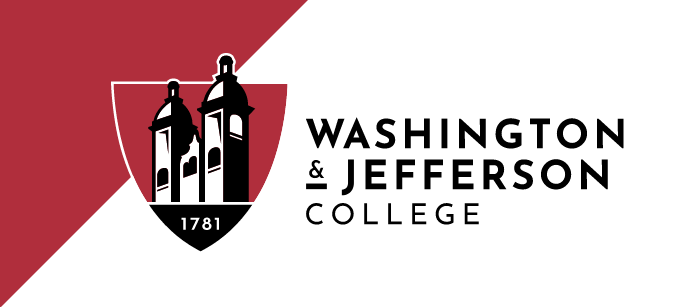Lauren Horning '15 leads a farm tour for chefs and her colleagues at FreshPoint, where she works to bring locally sourced food to restaurant tables.
WASHINGTON, PA (Dec. 18, 2017)—It’s never too early to pursue a sustainable lifestyle.
For Lauren Horning ’15, those habits were long in place before she arrived at Washington & Jefferson College (W&J), beginning during her childhood as part of a family with deep agricultural roots.
“We had a huge garden and preserved our own food,” she said. “For me, that was what I always knew, and when I went to college, it was shocking to see that isn’t what happens everywhere.”
Soon after arriving on campus, Lauren joined the Green Club and decided to start a composting program on campus. She received the support of the Sustainability Committee and secured a seed grant for $500 to buy compost tumblers. Her hard work at W&J continued, and she helped to launch other sustainable practices, including an annual dinner featuring food from local farms and a campus kitchen garden.
“I had so many rewarding moments seeing people realize how they could live more environmentally-sustainable lives while I was at W&J,” she said.
Lauren’s initiative—along with the hard work and dedication of countless other students, staff, and faculty members—has helped the College develop positive environmentally-friendly habits, earning W&J a place on the Princeton Review’s Top Green Colleges list. The Princeton Review highlights colleges with sustainable practices in place, and with programs like W&J’s Environmental Studies (EVS) major that prepares students for employment and citizenship in a world defined by environmental concerns and opportunities.
The moves that W&J makes toward sustainability are continually growing and expanding, but many of the College’s great features—like the Swanson Science Center, a Leadership in Energy and Environmental Design (LEED) certified building that was completed in 2010—weren’t always staples on campus.
When Grant Ervin ’99, the Chief Resilience Officer for the City of Pittsburgh, was a student, sustainability wasn’t as much of a part of the global conversation as it is today.
“The terminology wasn’t something that was discussed either in the curriculum or in approach to campus management or student engagement, but the basic approach of the liberal arts education and the interdisciplinary nature of the W&J experience made what we discuss today in terms of ‘sustainability’ part of the daily interactions on campus,” Grant said. “It’s exciting to see the evolution at W&J.”
That progression has led to the creation of programs that apply global trends on a local scale, including the College’s Center for Energy Policy and Management (CEPM). The CEPM is dedicated to fostering the development of energy policy that has a place for all energy sources and promotes economic growth while minimizing environmental impact.
Internships, various learning experiences, and opportunities made available to students at W&J through the Magellan Project, Mazingira Fund, and other grants have inspired students to pursue environmental careers and causes after graduation. In his role with the City of Pittsburgh, Grant has facilitated some of those internships, spoken at forums, and reviewed student projects.
For Lauren, experience working with W&J chefs and an internship with Grow Pittsburgh have led to a successful foray into the agricultural sector. She currently works with FreshPoint in North Carolina, where she finds farmers in the state and helps them plan what to grow as well as helping chefs to create their menus.
Both Grant and Lauren are proud to come from W&J and find the work the school is doing vital to informing future generations, earning its call out from the Princeton Review.
“The recognition is a great acknowledgement of the college's evolution and ability to respond to the increased needs of developing professionals that incorporate sustainability into practice. It really begins with creating a campus environment that utilizes the classroom experience and the campus itself as a laboratory,” Grant said.
And as Lauren notes, those innovations put W&J at the head of the pack.
“I think W&J’s role in higher education puts them in a position to be a leader in creating a new generation of people with sustainable mindsets,” she said. “For W&J to take a stand, and to put an investment into solar energy and composting on campus—that’s a huge step. Because W&J is so small [and relationship-focused], they can make a difference in changing people’s mindsets.”
About Washington & Jefferson College
Washington & Jefferson College, located in Washington, Pa., is a selective liberal arts college founded in 1781. Committed to providing each of its students with the highest-quality undergraduate education available, W&J offers a traditional arts and sciences curriculum emphasizing interdisciplinary study and independent study work. For more information about W&J, visit washjeff.dev, or call 888-W-AND-JAY.
Are you ready to Be A President? Apply to W&J now.

